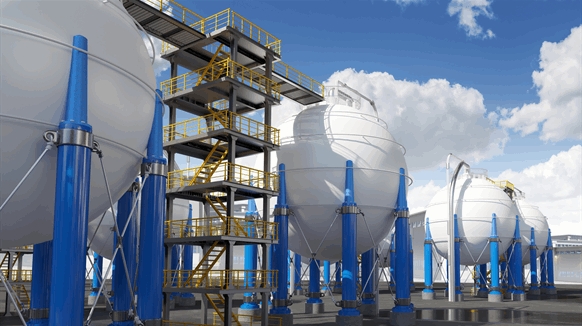
The European Commission (EC) is allotting up to $7.43 billion (EUR 6.9 billion) in public funding for hydrogen infrastructure projects.
The EC approved the third Important Project of Common European Interest (IPCEI), which aims to boost the supply of renewable energy in the European Union (EU), reduce dependence on natural gas, and help achieve the objectives of the European Green Deal and the REPowerEU Plan.
The project, called IPCEI Hy2Infra, was jointly prepared and notified by seven member states: France, Germany, Italy, the Netherlands, Poland, Portugal, and Slovakia, according to a news release from the EC.
The public funding from the member states is expected to unlock $5.81 billion (EUR 5.4 billion) in private investments. As part of the IPCEI, 32 companies with activities in one or more member states, including small and medium-sized enterprises, will participate in 33 projects, according to the release.
The IPCEI Hy2Infra project will help support a wide part of the hydrogen value chain, including the deployment of 3.2 gigawatts (GW) of large-scale electrolyzers for renewable hydrogen production and large-scale hydrogen storage facilities with capacity of at least 370 gigawatt-hours (GWh). The project will also cover the deployment of new and repurposed hydrogen transmission and distribution pipelines of approximately 1.677.7 miles (2,700 kilometers) and the construction of handling terminals and related port infrastructure for liquid organic hydrogen carriers to handle 6,000 metric tons of hydrogen per year.
The EC said that several projects are expected to be implemented in the near future, with various large-scale electrolyzers expected to be operational between 2026 and 2028, and pipelines between 2027 and 2029. The overall completion of projects is planned for 2029, with timelines varying depending on projects and companies.
Further, the technical knowledge and experience acquired during the construction and first years of operation of the projects will be widely shared by participating companies through publications, conferences, and joint recommendations for the development of operational rules and technical standards. “As a result, positive spill-over effects will be generated throughout Europe, beyond the companies and member states that are part of the IPCEI”, the EC noted.
According to the EC, all 33 projects included in the IPCEI “are highly ambitious, as they aim at developing infrastructure that go beyond what the market currently offers”.
“While the renewable hydrogen supply chain in Europe is still in a nascent phase, Hy2Infra will deploy the initial building blocks of an integrated and open renewable hydrogen network”, Margrethe Vestager, Executive Vice-President in charge of competition policy, said in a statement. “This IPCEI will establish the first regional infrastructure clusters in several Member States and prepare the ground for future interconnections across Europe, in line with the European Hydrogen Strategy. This will support the market ramp-up of renewable hydrogen supply and take us steps closer to making Europe the first climate-neutral continent by 2050”.
“For a successful roll-out of renewable and low-carbon hydrogen, all pieces of the puzzle need to come together. With this new Important Project of Common European Interest, 32 companies, including 5 SMEs, will invest in hydrogen infrastructure, for a total of more than 12 billion euro of private and public investment, to match supply and demand of hydrogen”, Commissioner Thierry Breton said. “It provides industries with more options to decarbonize their activities while boosting their competitiveness and creating jobs”.
The EC in May 2022 published the REPowerEU plan, which sets out a series of measures to rapidly reduce the EU's dependence on Russian fossil fuels by accelerating the clean energy transition. The plan includes a target of 10 million metric tons of domestic renewable hydrogen production and 10 million metric tons of imports by 2030, to replace natural gas, coal and oil in hard-to-decarbonize industries and transport sectors.
IPCEI Hy2Infra complements the first and second IPCEIs in the hydrogen value chain. IPCEI Hy2Tech focuses on the development of hydrogen technologies for end users, while IPCEI Hy2Use focuses on hydrogen applications in the industrial sector. Hy2Infra concerns infrastructure investments, which are not covered by the first two IPCEIs, according to the release.